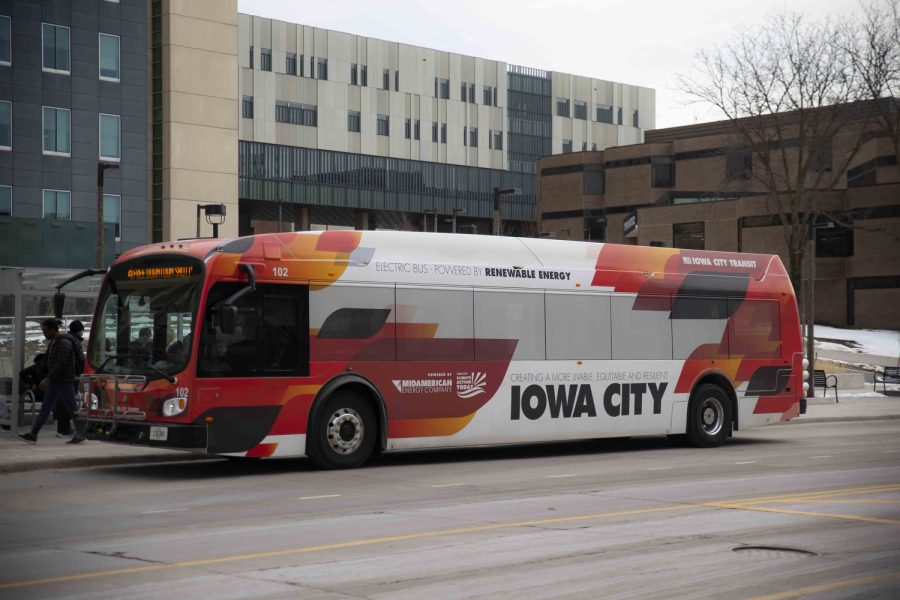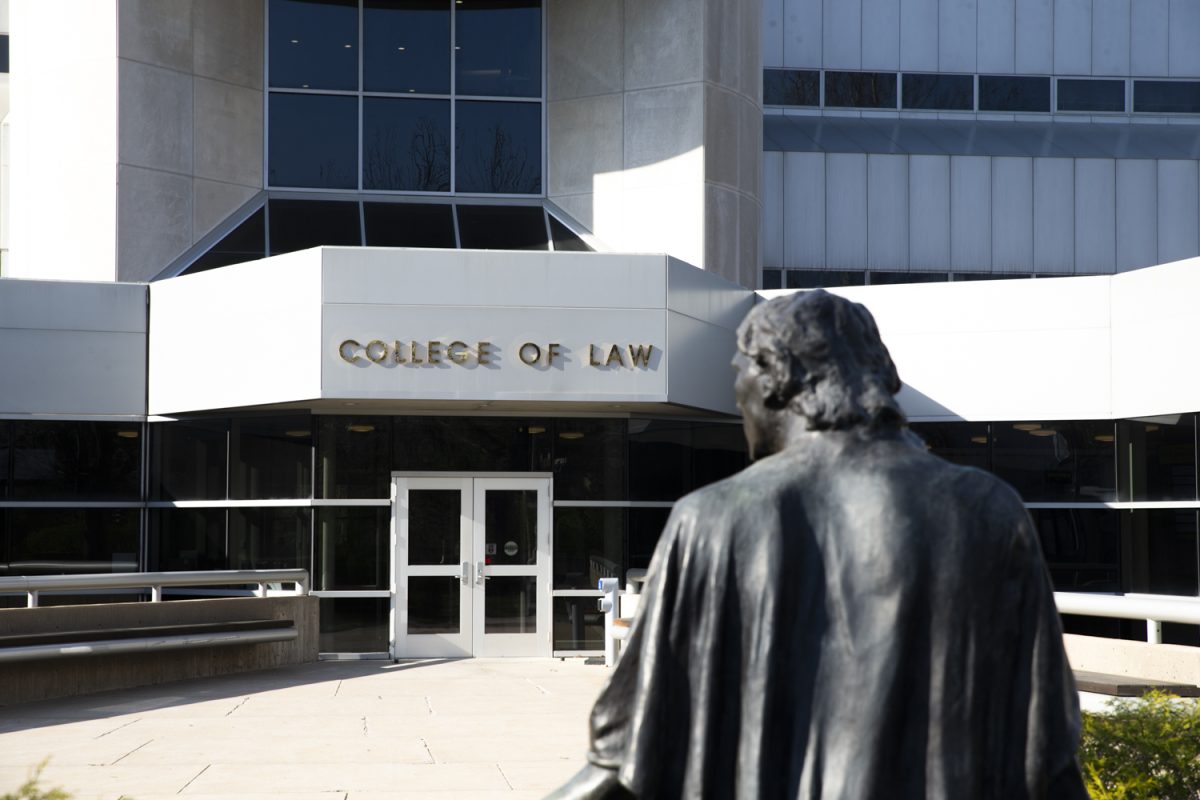Jose Antonio Vargas is a Pulitzer-Prize-winning journalist, a filmmaker, and advocate for immigration reform. One thing Vargas is not, however, is a documented American citizen.
Vargas, who spoke in Iowa City on Monday night, was born in the Philippines and was brought to the United States at a young age. He was raised by his grandparents in California.
At the age of 16, he learned he was one of more than 11 million undocumented immigrants living in the United States. Approximately 75,000 undocumented immigrants live in Iowa.
He discovered this when he tried to get a license and couldn’t because his green card was fake. From that day forward, Vargas hid his secret from the world until 2011, when he came out to the world in a New York Times article.
Vargas is traveling across the country to advocate for immigration reform. His appearance at the Englert Theater, 221 E. Washington St., aimed to reach out to students and community members.
“People like me should be able to come forward,” Vargas said.
Vargas is arguing for a process in which people in his situation should be able to become documented citizens.
But Tim Hagle, an associate professor of political science at the University of Iowa, said some people are arguing that a legalization process for people such as Vargas encourages people to break the law.
“[People will ask] ‘What about the people who are doing it the right way?’ ” he said. “We don’t want to encourage illegal behavior. There are people who are trying to find some middle ground between total amnesty and total non-amnesty.”
Vargas said he can understand this concern and that he is willing to take a legal process to become a citizen. However, as of right now, Vargas has only two options. One is to get married to a woman, but because he is gay and the U.S. federal government does not recognize gay marriage, he said that’s not an option.
His second option is to move back to the Philippines, accept a 10-year ban from applying for U.S. citizenship, then apply.
“I’ll get in the back of the line,” he said. “Just tell me how many years, [and] I don’t think 20 years is reasonable.”
Vargas also said he wants to bring to light all of the people who are helping undocumented immigrants get by.
Vargas is the founder of the nonprofit Define American that seeks to bring these allies into the discussion about immigration reform. One “immigrant ally” Vargas named from his life was his high-school principal. He couldn’t afford college and he could not apply for financial aid, so she helped him get there.
Students at the Englert Monday said they could relate to his situation.
UI freshman Alejandra Flores said she was brought to the United States at the age of 2 from Mexico and just recently became a legal citizen.
“I feel like it wouldn’t be fair — going through high school, having an amazing GPA, giving back to my community — to not be able to go to college,” Flores said. “If you work so hard for what you have, you deserve something back.”
UI freshman Lisa Alvarez said that while she was born in the United States, she has relatives who were not able to gain legal status. Her older brother is undocumented, and while he was able to finish high school, knowing he could not go to college discouraged him.
“He really didn’t find a reason to try,” she said.
Both women said so many undocumented immigrants work hard to give back to their community and still can’t achieve legal status while many Americans take it for granted.
“I feel like so many citizens of this country don’t appreciate what they have,” Flores said.






